Ehud Asherie Feat. Harry Allen - Modern Life (2010)
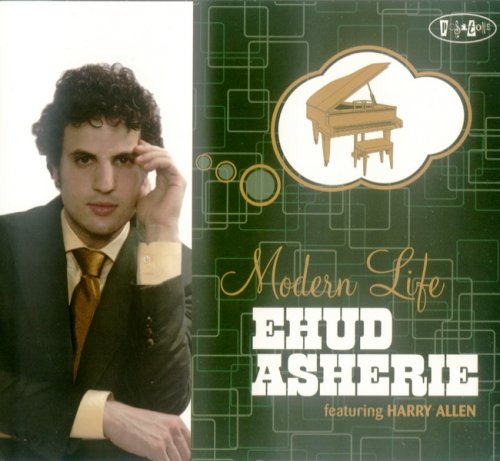
Artist: Ehud Asherie Feat. Harry Allen
Title: Modern Life
Year Of Release: 2010
Label: Posi-Tone Records
Genre: Jazz
Quality: Mp3 / 320kbps
Total Time: 61:28 min
Total Size: 140 MB
WebSite: Album Preview
TracklistTitle: Modern Life
Year Of Release: 2010
Label: Posi-Tone Records
Genre: Jazz
Quality: Mp3 / 320kbps
Total Time: 61:28 min
Total Size: 140 MB
WebSite: Album Preview
-----------
01. I've Told Every Little Star
02. Blues For George
03. The Trolley Song
04. He Loves And She Loves
05. Vignette
06. One For V
07. No Moon At All
08. Casbah
09. Soon
10. A Flower Is A Lovesome Thing
New York-based pianist Ehud Asherie has a sprightly, dancing style on the keyboard at times that is reminiscent at times of a longtime favorite swing practitioner, John Bunch. Asherie is in great company on this mainstream swing project, which features tenor saxophonist Harry Allen. Bassist Joel Forbes and drummer Chuck Riggs, two of Allen s frequent collaborators, complete the rhythm section. Everything here is well done as they mine Swing Street, Blues Alley and a few chapters from The Great American Songbook. My favorites: Asherie s originals Blues for George and One for V, as well as their takes on the Hank Jones tune Vignette and Tadd Dameron s Casbah. While Allen is at his high-energy best on the blues piece and George Gershwin s Soon, his exquisite way with a ballad is also a delight on Billy Strayhorn s A Flower is a Lovesome Thing. Asherie and Allen work well together - with empathy, high spirits and the sheer will to swing. --Ken Franckling's Jazz Notes
It is rare indeed to discover a young pianist, so obviously neither a baby nor a Baby Boomer, who is steeped in the history and tradition of American music from the turn of the twentieth century onwards. To find he can write a mean blues is a wonder and more than a joy to hear. To then get him in the studio in the company of someone like tenor saxophonist Harry Allen must be any producer's dream, but Marc Free made it happen. Ehud Asherie and Harry Allen are swinging madly on Modern Life. The two musicians seem soul brothers and though several years may separate them, they appear to be attuned to each other's consciousness as if they were twins. Asherie is a pianist who has obviously listened to Tommy Flanagan and perhaps even Jimmy Rowles. As a composer, Asherie is influenced by the compositional style and early music of Hank Jones. Asherie flavors the melodious twists and turns of the charts he writes, but he's his own man as a soloist, with a right hand that rolls delightfully over the black and white. His expression is genteel, and his dynamic is so tuned to the rhythm of what he is playing, he would be wonderful to dance to. His pianistic vocabulary when he solos is sophisticated. He tantalizes with darting phrases and lines that suddenly stop, then fly off again. And when the line returns it is often inside out, a steady flow of surprises unfolding in its wake. To that extent, both his blues are wonderfully crafted with uncommon erudition. The two blues "Blues for George" and "One for V" feature some exemplary writing. The elemental sadness of the melody hangs as the chart is paced just about half a beat slower, enough for a noisier tug at the strings of the heart. The rest of the fare seems to have fallen into the musicians' studio full of stardust. It might have been calculated to provide a feature for Harry Allen. And this tenor saxophonist steps way up to the spotlight to play his part. His tone is low and majestic, sliding with almost divine glissandos from line to line. His broad sliding lines curve through the air and embellish every melody he plays, especially on "I've Told Every Star," crafted by Jerome Kern. "No Moon at All," the David Mann/Redd Evans classic, penned in 1917, which says much about how far the musicians were prepared to go to preserve the emotion of the set is also wonderfully rendered recalling almost the fey character of Julie London's 1927 classic performance. On Billy Strayhorn's "A Flower Is A Lovesome Thing," Allen and Asherie virtually caress the melody in a spectacular, sensuous manner that keeps the air charged with emotion. It would be sheer fallacy not to also acknowledge bassist Joel Forbes and drummer Chuck Riggs, who have a symbiotic feel for the program. It is hard to imagine a better rhythm section that plays with such sensitivity for the material, or for the album's stars to shine ever brightly. --Raul d'Gama Rose, All About Jazz
Modern life, if this fine recording from Israeli-born, New York-based pianist Ehud Asherie is anything to go by, happened sometime between the late-1940s and the late-'50s. From the beautifully-designed packaging with the greens and golds of the graphics matched by those of Asherie's suit, shirt and tie to the exquisite renditions of classic tunes and a couple of Asherie originals, Modern Life is an album that oozes nostalgia and a love for a style of jazz that remains fresh and engaging today. Asherie's piano style reflects the inspiration of players such as Errol Garner. Light and lyrical, it's an approach that creates delightful solos on Jerome Kern's "I've Told Every Little Star" and Asherie's own "Blues for George," as well as understated and note-perfect accompaniments throughout. Both talents are shown to great effect on George Gershwin's "He Loves and She Loves," with Asherie's feather-light accompaniment to Harry Allen's saxophone moving effortlessly into his own sparkling solo. This tune also highlights the rhythm section of bassist Joel Forbes and drummer Chuck Riggs, with both players showing a deft economy that ensures an ideal foundation for the lead instruments. The sound of Allen's tenor sax goes straight back to Ben Webster via Zoot Sims, making this recording very special indeed. His tone is warm and rich, whatever the tempo. On Hank Jones' "Vignette" Allen's tenor positively skips across the melody, while on Tadd Dameron's "Casbah" he's altogether more sultry and seductive, as he evokes a late night atmosphere of mystery and romance. Asherie and Allen close out the album with a duet version of Billy Strayhorn's "A Flower is a Lovesome Thing." They respond to the absence of Riggs and Forbes not by attempting to fill in the spaces but by leaving them be. The result is a languid and relaxed performance of great beauty. Indeed, great beauty is a characteristic to be found throughout Modern Life. --Bruce Lindsay, All About Jazz
It is rare indeed to discover a young pianist, so obviously neither a baby nor a Baby Boomer, who is steeped in the history and tradition of American music from the turn of the twentieth century onwards. To find he can write a mean blues is a wonder and more than a joy to hear. To then get him in the studio in the company of someone like tenor saxophonist Harry Allen must be any producer's dream, but Marc Free made it happen. Ehud Asherie and Harry Allen are swinging madly on Modern Life. The two musicians seem soul brothers and though several years may separate them, they appear to be attuned to each other's consciousness as if they were twins. Asherie is a pianist who has obviously listened to Tommy Flanagan and perhaps even Jimmy Rowles. As a composer, Asherie is influenced by the compositional style and early music of Hank Jones. Asherie flavors the melodious twists and turns of the charts he writes, but he's his own man as a soloist, with a right hand that rolls delightfully over the black and white. His expression is genteel, and his dynamic is so tuned to the rhythm of what he is playing, he would be wonderful to dance to. His pianistic vocabulary when he solos is sophisticated. He tantalizes with darting phrases and lines that suddenly stop, then fly off again. And when the line returns it is often inside out, a steady flow of surprises unfolding in its wake. To that extent, both his blues are wonderfully crafted with uncommon erudition. The two blues "Blues for George" and "One for V" feature some exemplary writing. The elemental sadness of the melody hangs as the chart is paced just about half a beat slower, enough for a noisier tug at the strings of the heart. The rest of the fare seems to have fallen into the musicians' studio full of stardust. It might have been calculated to provide a feature for Harry Allen. And this tenor saxophonist steps way up to the spotlight to play his part. His tone is low and majestic, sliding with almost divine glissandos from line to line. His broad sliding lines curve through the air and embellish every melody he plays, especially on "I've Told Every Star," crafted by Jerome Kern. "No Moon at All," the David Mann/Redd Evans classic, penned in 1917, which says much about how far the musicians were prepared to go to preserve the emotion of the set is also wonderfully rendered recalling almost the fey character of Julie London's 1927 classic performance. On Billy Strayhorn's "A Flower Is A Lovesome Thing," Allen and Asherie virtually caress the melody in a spectacular, sensuous manner that keeps the air charged with emotion. It would be sheer fallacy not to also acknowledge bassist Joel Forbes and drummer Chuck Riggs, who have a symbiotic feel for the program. It is hard to imagine a better rhythm section that plays with such sensitivity for the material, or for the album's stars to shine ever brightly. --Raul d'Gama Rose, All About Jazz
Modern life, if this fine recording from Israeli-born, New York-based pianist Ehud Asherie is anything to go by, happened sometime between the late-1940s and the late-'50s. From the beautifully-designed packaging with the greens and golds of the graphics matched by those of Asherie's suit, shirt and tie to the exquisite renditions of classic tunes and a couple of Asherie originals, Modern Life is an album that oozes nostalgia and a love for a style of jazz that remains fresh and engaging today. Asherie's piano style reflects the inspiration of players such as Errol Garner. Light and lyrical, it's an approach that creates delightful solos on Jerome Kern's "I've Told Every Little Star" and Asherie's own "Blues for George," as well as understated and note-perfect accompaniments throughout. Both talents are shown to great effect on George Gershwin's "He Loves and She Loves," with Asherie's feather-light accompaniment to Harry Allen's saxophone moving effortlessly into his own sparkling solo. This tune also highlights the rhythm section of bassist Joel Forbes and drummer Chuck Riggs, with both players showing a deft economy that ensures an ideal foundation for the lead instruments. The sound of Allen's tenor sax goes straight back to Ben Webster via Zoot Sims, making this recording very special indeed. His tone is warm and rich, whatever the tempo. On Hank Jones' "Vignette" Allen's tenor positively skips across the melody, while on Tadd Dameron's "Casbah" he's altogether more sultry and seductive, as he evokes a late night atmosphere of mystery and romance. Asherie and Allen close out the album with a duet version of Billy Strayhorn's "A Flower is a Lovesome Thing." They respond to the absence of Riggs and Forbes not by attempting to fill in the spaces but by leaving them be. The result is a languid and relaxed performance of great beauty. Indeed, great beauty is a characteristic to be found throughout Modern Life. --Bruce Lindsay, All About Jazz
IsraCloud : Download
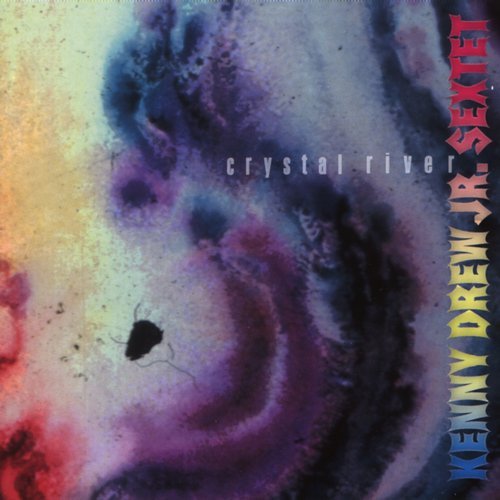
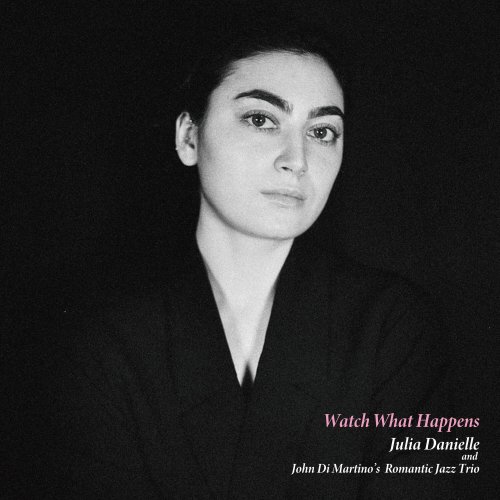
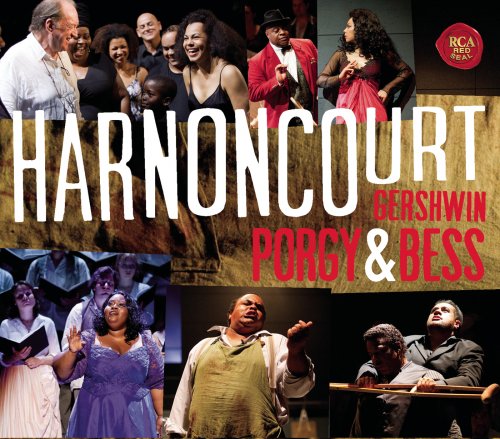

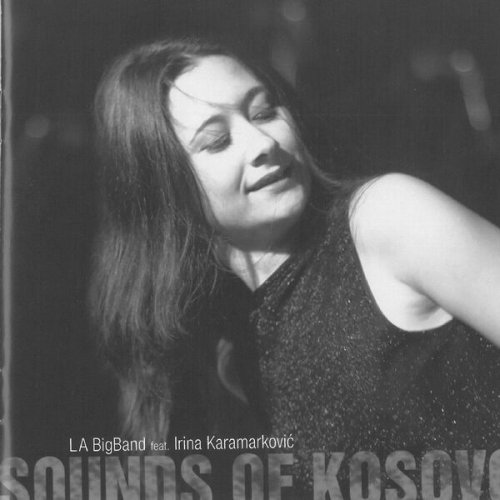
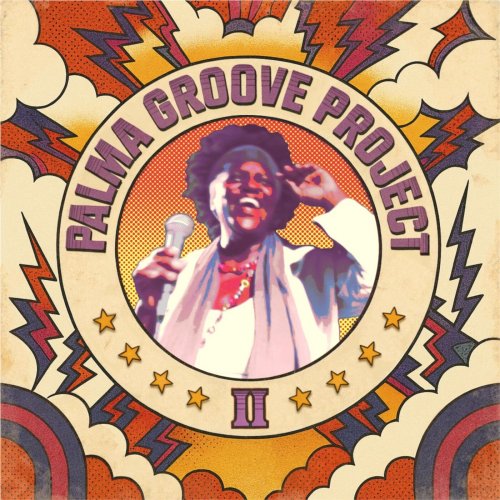
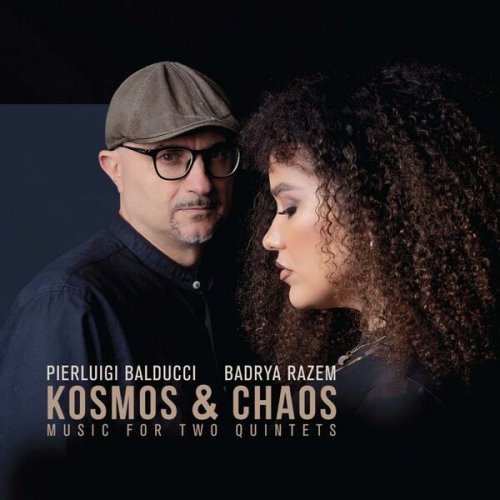
![Anna Kolchina - Reach for Tomorrow (2026) [Hi-Res] Anna Kolchina - Reach for Tomorrow (2026) [Hi-Res]](https://img.israbox.com/img/2026-02/19/quc4em3qn6fgke1rwewkbdxg5.jpg)
![Jay Cinema - A Smile to a Tear (2025) [Hi-Res] Jay Cinema - A Smile to a Tear (2025) [Hi-Res]](https://img.israbox.com/img/2026-02/15/3den0r6ij0gj805kc59em92op.jpg)